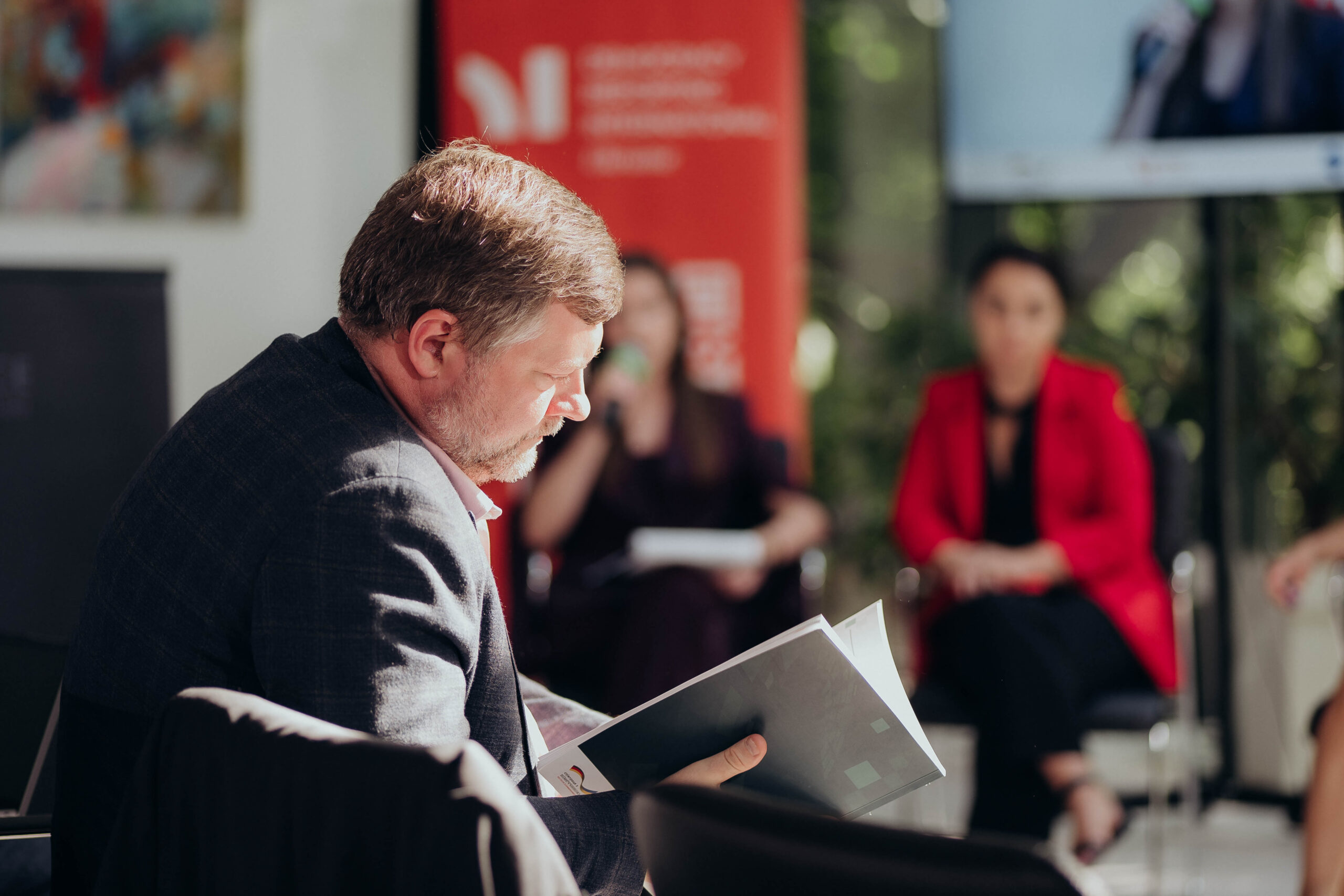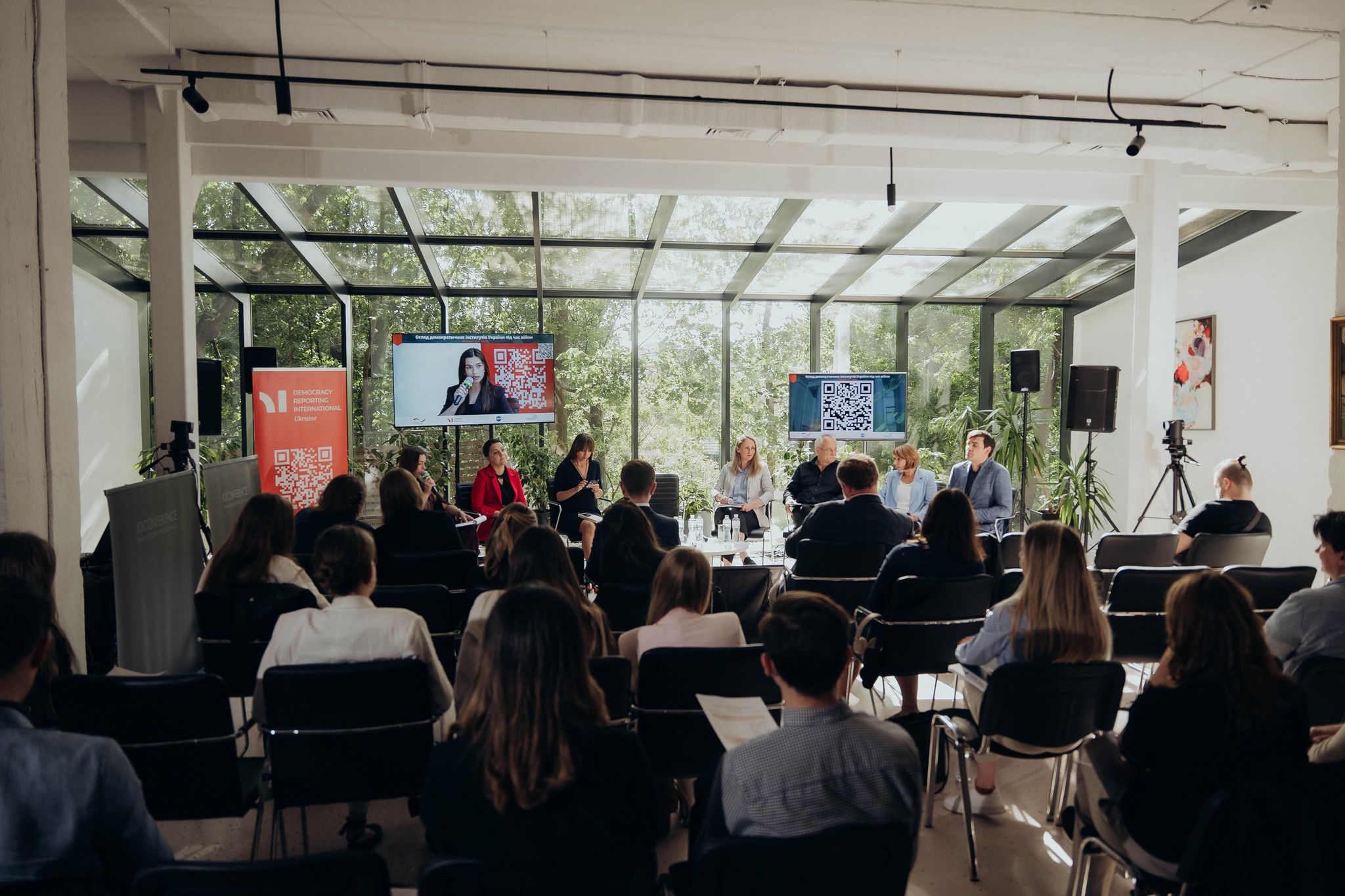DRI presented a report reviewing democratic institutions during wartime
On 26 June, the official presentation of the report “Overview of Ukraine’s democratic institutions during the war” took place in Kyiv. The report was prepared by Democracy Reporting International (DRI) Ukraine in partnership with the Centre of Policy and Legal Reform (CPLR) and The Reanimation Package of Reforms Coalition (RPR) with the support of the German Federal Foreign Office. The Head of the Board of the Human Rights Centre ZMINA, Tetiana Pechonchyk, contributed to the preparation of the report and its discussion.

The report is the result of an analysis of key changes and trends in the field of democracy over the past year. The document continues a series of annual assessments that DRI has been preparing with its partners since the beginning of Russia’s full-scale invasion of Ukraine. This report focuses on the balance between the need to ensure national security and the preservation of democratic values. The publication covers events in 2024 and, in some cases, the first months of 2025, where necessary for the completeness of the analysis.
The research focuses on eight thematic areas: the Parliament, elections, executive power, the judiciary, local self-government, the media, civil society and human rights. The analysis is based on open data, regulatory and legal acts, reports by international institutions and materials from civil society organisations. An important component of the report’s preparation was eight expert discussions involving representatives of all branches of government, the media, civil society, and the human rights sector.
The report covers both the achievements and structural challenges faced by institutions during the war and offers practical recommendations for overcoming them. This document serves not only as an analytical summary but also as a guide for future decisions, both for Ukrainian authorities and international partners supporting Ukraine’s democratic development amid unprecedented challenges.

As DRI noted, Russia’s full-scale war against Ukraine poses unprecedented challenges to democratic institutions. Martial law has also exacerbated institutional imbalances, requiring clear legislative regulation of the interaction between the President, the Government and the Parliament. Despite these challenges, Ukraine demonstrates an unwavering commitment to democratic principles and resilience in their implementation.
The Parliament, the Government, the judiciary and local self-government have not only maintained their functionality but continue to adapt to the new challenges of wartime. Despite the difficult conditions of martial law, the country fulfils its commitments within the framework of European integration, and its democratic mechanisms remain viable and active.
According to Tetiana Pechonchyk, the human rights section of this report focuses on the Ombudsman as the specialised institution responsible for protecting human rights in Ukraine. Among the positives is the increasing number of appeals to the Ukrainian Parliament Commissioner for Human Rights, as well as the strengthened regional network of the Commissioner. However, as the human rights defender noted, the institution faces a number of systemic problems that limit its effectiveness and independence. These include the politicisation and lack of transparency of the Ombudsman selection process, exclusion of civil society from the process, absence of guarantees for independence during the appointment and dismissal of the Commissioner, as well as a shortage of resources and mechanisms ensuring financial independence.
As Pechonchyk noted, last year, a draft law addressing these and other issues was developed within the framework of the Parliament Commissioner for Human Rights with the participation of civil society organisations. However, after it was registered in the Parliament in April this year, it became known that the most fundamental provisions had been removed. “Thus, this draft law will not help to eliminate the key problems regarding the independence of the Ombudsman institution,” she concluded.
Tetiana Pechonchyk also emphasised the need to update the National Human Rights Strategy and develop a corresponding action plan for 2026–2028.

The report also provides recommendations for state authorities, civil society and international partners that can contribute to preserving and strengthening the democratic order in Ukraine even under martial law, including human rights.
The document pays particular attention to the link between the functioning of democratic institutions and the European integration process. The data presented in the report was taken into account during the preparation of the Roadmap on the Functioning of Democratic Institutions, developed jointly by the state authorities and civil society in 2024.

You can watch the full recording of the presentation at the link.
The report is available here.
Photos provided by DRI.
If you have found a spelling error, please, notify us by selecting that text and pressing Ctrl+Enter.















